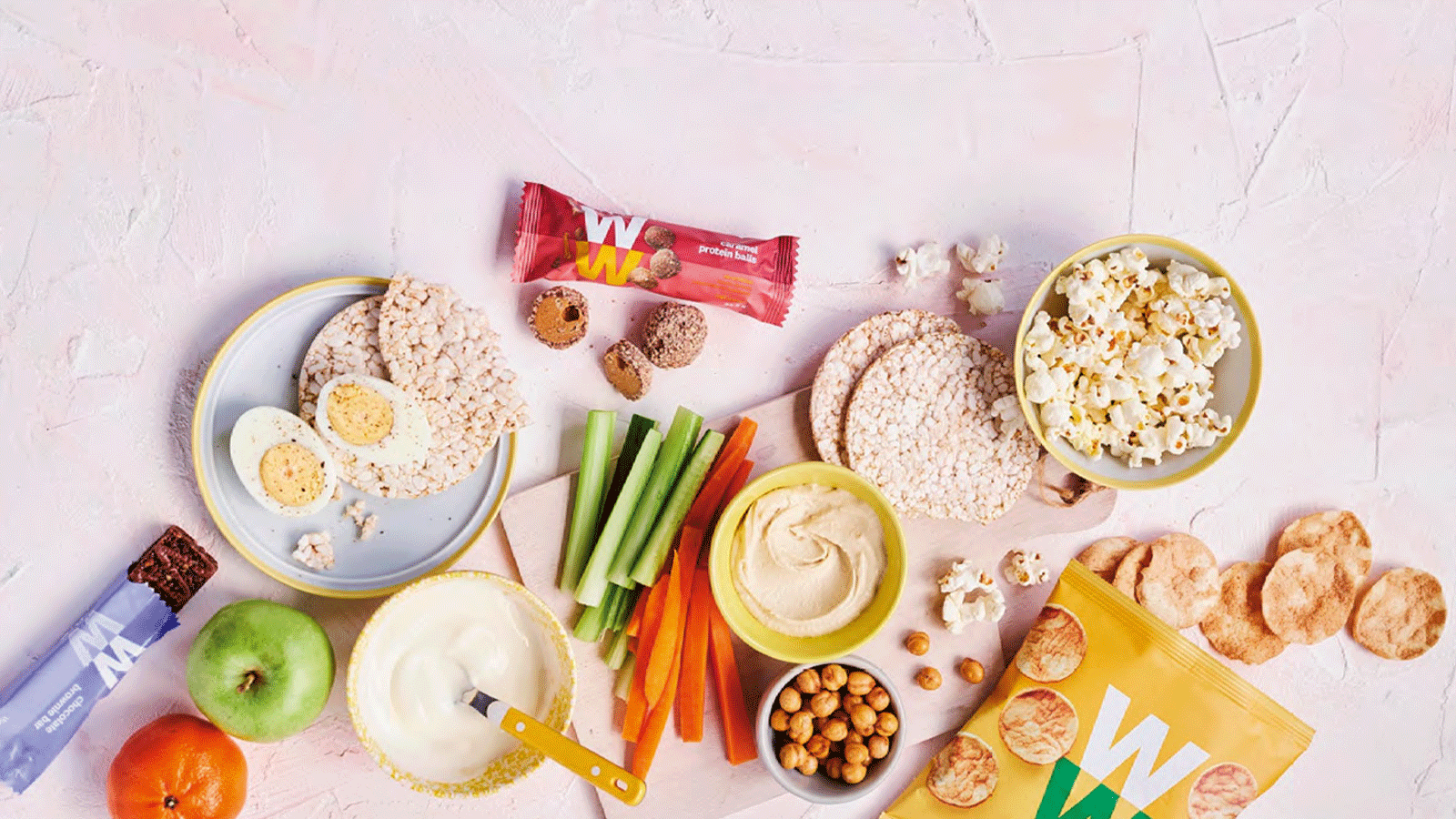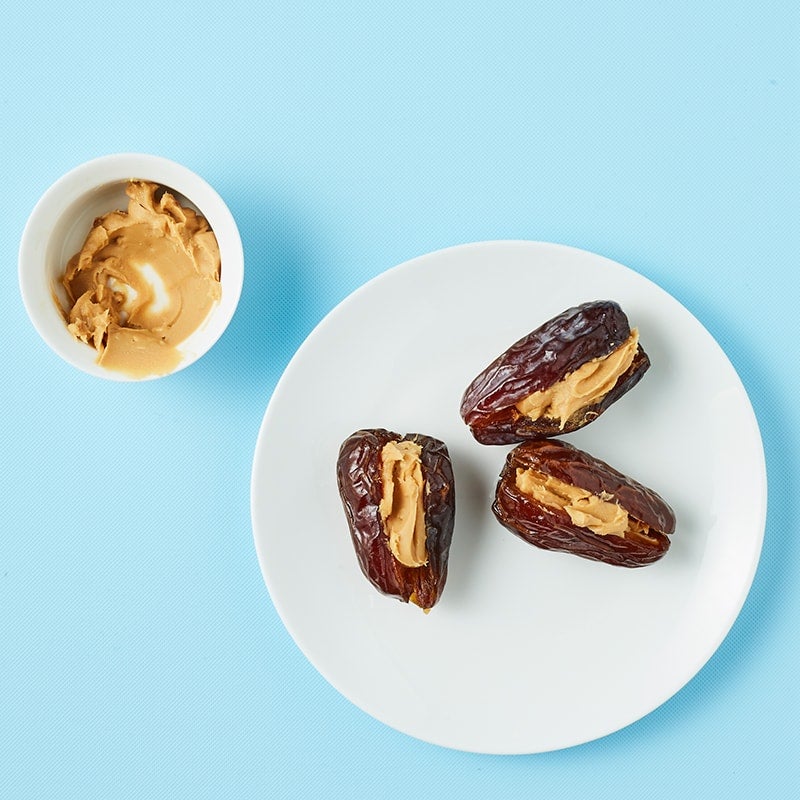Healthier snack ideas and handy tips
From packaged snacks to planning ahead, learn how to make healthy snacking simple!

A guide to smarter snacking
Healthy snacks can boost your energy and concentration, control blood sugar and insulin levels, and help you meet daily nutrient requirements. When it comes to managing or losing weight, a nutritious snack can help keep your appetite on an even keel and prevent overeating at mealtime.
“Healthy snacking can improve your health, manage your hunger, assist with weight management, regulate your mood and give you energy to keep going throughout the day,” explains dietitian Alex Parker. “Snacking is also an opportunity to sneak in nutrient-rich foods like fruit and vegetables.” Not all snacks are created equal, though – poorer snack choices can impact your healthy habits and weight-loss efforts and leave you even hungrier.
Take a closer look at how you can build a smart snack strategy.
Reach for fruit and veggies
Try and reach for unpackaged snacks where possible, such as fruit and veggies. These don’t have additives or preservatives and contain natural sugars rather than added sugar and salt. Not to mention unpackaged snacks are generally cheaper. So reach for an apple or kiwifruit when you get peckish. No prep required!
What to look for on packaged snack labels
With an ever-increasing range of grab-and-go items available, it can be tricky making healthier choices. As a general guide you can look for these items:
Kilojoules (a.k.a. calories): As a rule of thumb a snack should have around 500-600kJ or less.
Saturated fat: Compare similar products per 100 grams and go for the lower option.
Sugars: 1 teaspoon of sugar is equal to about 5 grams. Just keep in mind that lactose in milk and fructose in fruit are natural sources that increase the total sugar count of a food. However it’s the added sugars that you should watch out for.
Dietary fibre: Sources of dietary fibre have at least 2 grams per serve, whereas excellent sources have 7 grams per serve. Dietary fibre helps you feel fuller for longer, so the greater the amount the better.
Salt or sodium: Low salt foods must have less than 120 milligrams sodium per 100 grams. Salty snacks over 500 milligrams of sodium per 100 grams should be limited to a couple of times per week.
How to plan your snacks
Portion control
Smart snacking means having a healthy, portion-controlled choice on hand when hunger calls. Keep healthy options such as almonds in your glove box, work drawer and gym bag. In a study by mindless-eating expert Dr Brian Wansink, participants given larger portions ate 77 per cent more food at snack time, yet they didn't report any stronger feelings of appetite satisfaction than the group that ate the smaller portions.
Fuel your fitness
If you’re heading to the gym after work, have a healthy afternoon snack such as a banana or yoghurt before you go.
Think differently
Don’t be afraid to shake things up – a small bowl of warm porridge with cinnamon makes a comforting winter afternoon snack.
3 simple snacks to try
Snack smart tips
There are plenty of ways to ensure you make healthy snack choices when hunger strikes. Try these strategies:
1. Prep it
If you have spare time during the week, use it to whip up a batch of cocoa bliss balls, boil some eggs, or slice veggies such as carrot, capsicum and cucumber and store in airtight containers in the fridge. Pop them on the top shelf so they’re the first thing you see!
2. Portion it out
Get in the habit of portioning out snacks, whether you’re at work or home. “Rather than keeping a large bag of nuts in your drawer at work, portion out 30 grams into zip-lock bags to help prevent overeating,” suggests Parker. Write the Points on the bag for easy tracking.
3. Stock up
Keep healthy options in your handbag or desk so you don’t turn to the vending machine. Try mini packs of natural popcorn, wholegrain crackers and nut butter, or instant porridge sachets.
4. Head to the supermarket
Caught out on the go? “The supermarket has your back,” says Scoular. “Fresh fruit and a tub of yoghurt, sliced cheese or a tin of tuna are easily found.” Keep a spoon or fork in your handbag and you’ll be good to go!
5. Stay hydrated
Sometimes thirst registers as hunger, so try to always carry a bottle of water and sip regularly to ensure you’re properly hydrated.


